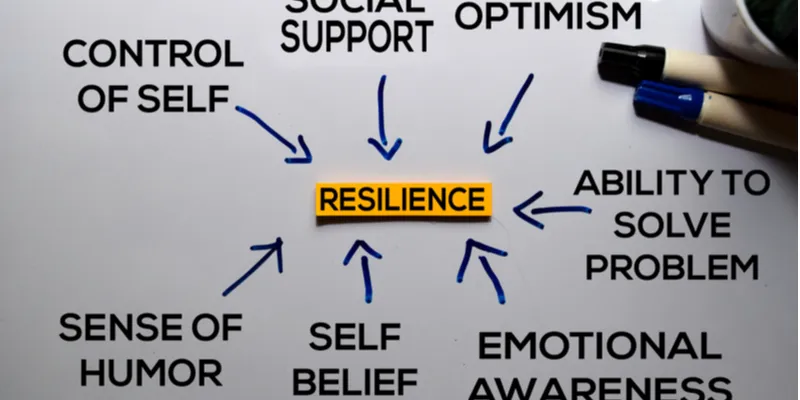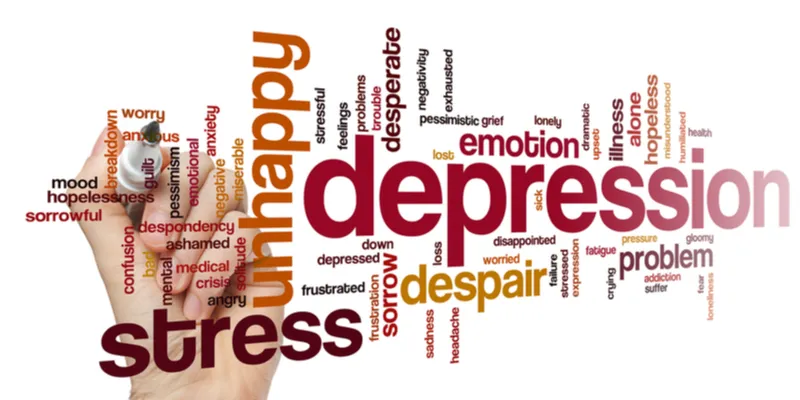Resilience is the key: A clinical psychotherapist talks about mental health on World Suicide Prevention Day
World Suicide Prevention Day falls on September 10 and it is a good time to consider the importance of mental health. Clinical psychotherapist, Radhika Bapat offers some advice on how to stay calm, positive and balanced during these uncertain times.
“So, what if we are identical. Ayan has always handled stress better than me,” said Yuvan, his identical twin. “We were 12 years old when our abusive alcoholic father abandoned us. I was completely shattered. With little money and no one to help my mother out, Ayan looked dismayed for about half an hour and slept peacefully all night.
His attitude - mainly his sense of humour revitalised and enlivened our home environment. It helped my mother find the stability that she needed to start anew. I, on the other hand, stayed up the entire night fearing what the future might bring. What would my mother do? How would we survive? Things turned out okay, not splendid, but okay in the end.”
What makes genetically identical twins who have had similar home environments respond differently to the same triggers? While one sleeps well at night, why can’t the other stop worrying?
The right information
A branch of psychology known as Behavioural Genetics studies how both genetics and environment together influence our behaviours, and more recent dynamic models of behaviours have shown us how information can change intentions, which in turn can change the choices we make.

Freedom is limited during a pandemic
In short, the right information gives us power over the choices that we make, and how we adapt to compelling circumstances. When your freedom is limited, you invoke the quote by Reinhold Niebuhr -- “Try to change the things that you can, accept the circumstances you cannot change (Covid-19), and have the wisdom to know the difference.”
There is no denying that the coronavirus crisis has taken an unprecedented toll on you and me. What originated as something “out there” has spiralled “in here” into what feels like a never-ending apocalyptic unveiling.
To complicate matters, there is confusion about news versus fake news, there is a sense of urgency to want things to go back to “like before” and there is deep uncertainty about tomorrow and the future of those we love.
Against all odds

Mental health requires resilience
We are at-risk economically and emotionally - a recipe for the perfect storm. During such times, psychologists look to science for solutions to mitigate the wind damage. Within the scientific literature, the best place to look at is studies that examine children who thrived “against all odds” and bounced back from their stress or overcome their unfavourable circumstances to become competent and healthy adults. Some of these children suffered poverty, others emotional, physical, sexual abuse or neglect.
What contributed to these success stories? Psychologists speak of a trait called “resilience” or “hardiness” or “toughness” when they refer to these little heroes. This is where science has some good news. Resilience or toughness is not just a personality trait. It can be taught and it can be learnt - at any age. Interventions to create more durable humans are especially important during times like today. Whereas many webinars and articles tell you what to do, they don’t give you the rationale. It is this rationale that can bring about change and give meaning to your choices.
Mental health during trying times
Here are a few interventions to help you stay afloat until we tide through this pandemic along-with the rationales
Meet achievable goals
Don’t fall for those visuals that show people functioning at 99% capacity. Keep to the lowest achievable goal that you can manage, given your physical constraints and your limited circumstances, and slowly work your way up.
Move

Exercise is mandatory for mind and body balance
Do it only for 20 minutes, but do it consistently. Every. Single. Day.
Regular movement helps with endorphins. If you are patient, then over time you see how these help with your sleep as well.
Stick to that routine
Whatever “that” routine is, stick to it. Routines positively reduce the number of negative thoughts that you have and this directly impacts how you feel. Make sure to allow for the routine to be flexible because life is unpredictable! For starters, if you can follow through 60% of the time, you’re doing a good job.
Practise mental distancing

Imagine your worries as helium-filled balloons and watch them fly away
Imagine that your worries are helium filled balloons and watch them fly away from you. They do not entirely disappear, but they are now up in the sky, and much tinier in size in the background rather than in the foreground.
Call a therapist
If you feel overwhelmed by loneliness but are not depressed or even anxious, speak to a therapist anyway. They say speaking to a professional helps not just with gaining clarity, but also with feeling less lonely.
Stay with the bigger picture
For the next 4 quarters, the collective target for our race is staying afloat. Remind yourself to “accept finite disappointment without losing infinite hope.”
Healthy negative emotions are important

It’s okay to feel disappointed, concerned, annoyed, sad, regretful and frustrated at times. The problem is unhealthy negative emotions like rage, anxiety, anger, depression, shame and “I can’t stand it’s.” It’s a question of degree.
Worry-Scheduling
Every time a worrisome thought pops up in your head, tell yourself, “I will worry about this only between 4 and 4:15 pm, my worry-time” This technique is a classical technique used to manage anxious cognitions. It limits and contains your worries to a specific time, making you more productive for the rest of the day, and helping you sleep better.
Give and take
Altruism is known to help you feel better.
Laughing is serious business
Self-enhancing humour styles are like a circle of protection that uplift you and help with coping. Reading books or watching uplifting television shows have similar effects. Make sure to get your dose daily.
We will overcome
When Helen Keller was one and a half years old, she lost both her eyesight and her hearing. As someone who couldn’t see or hear, she was the first deaf and blind person to earn a Bachelor of Arts degree. She went on to become an author, political activist, and lecturer and of suffering, she said “Although the world is full of suffering, it is also full of the overcoming of it”
(Images credit: Shutterstock)
Edited by Asha Chowdary
(Disclaimer: The views and opinions expressed in this article are those of the author and do not necessarily reflect the views of YourStory.)









